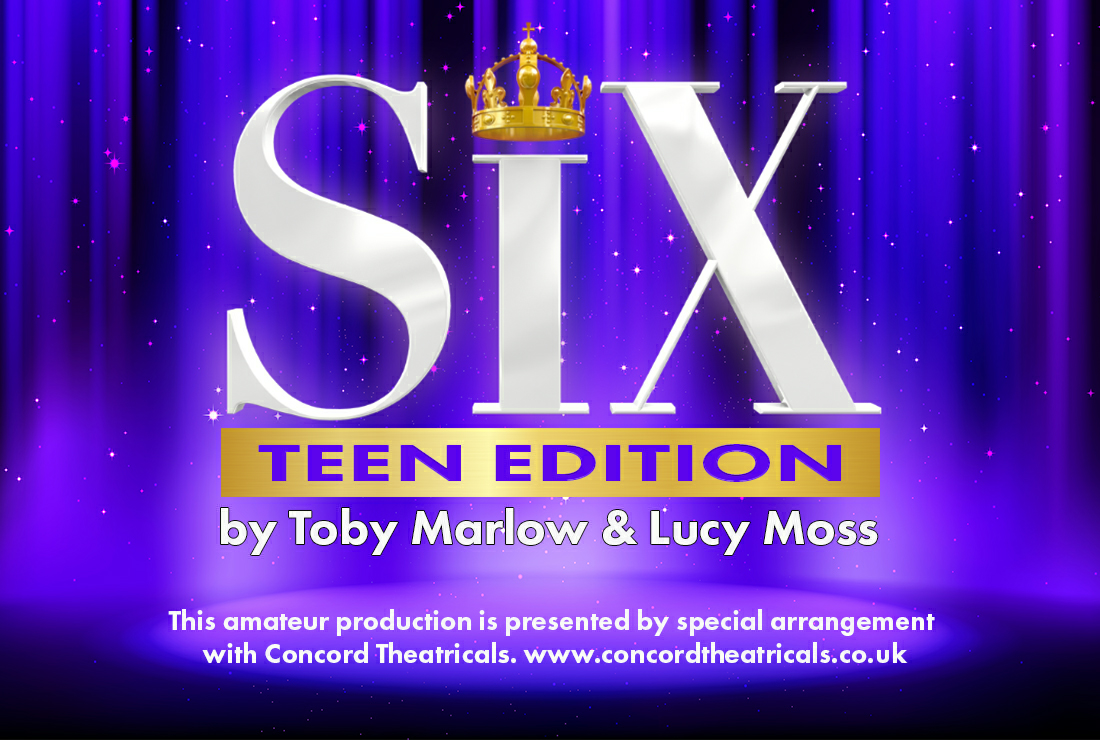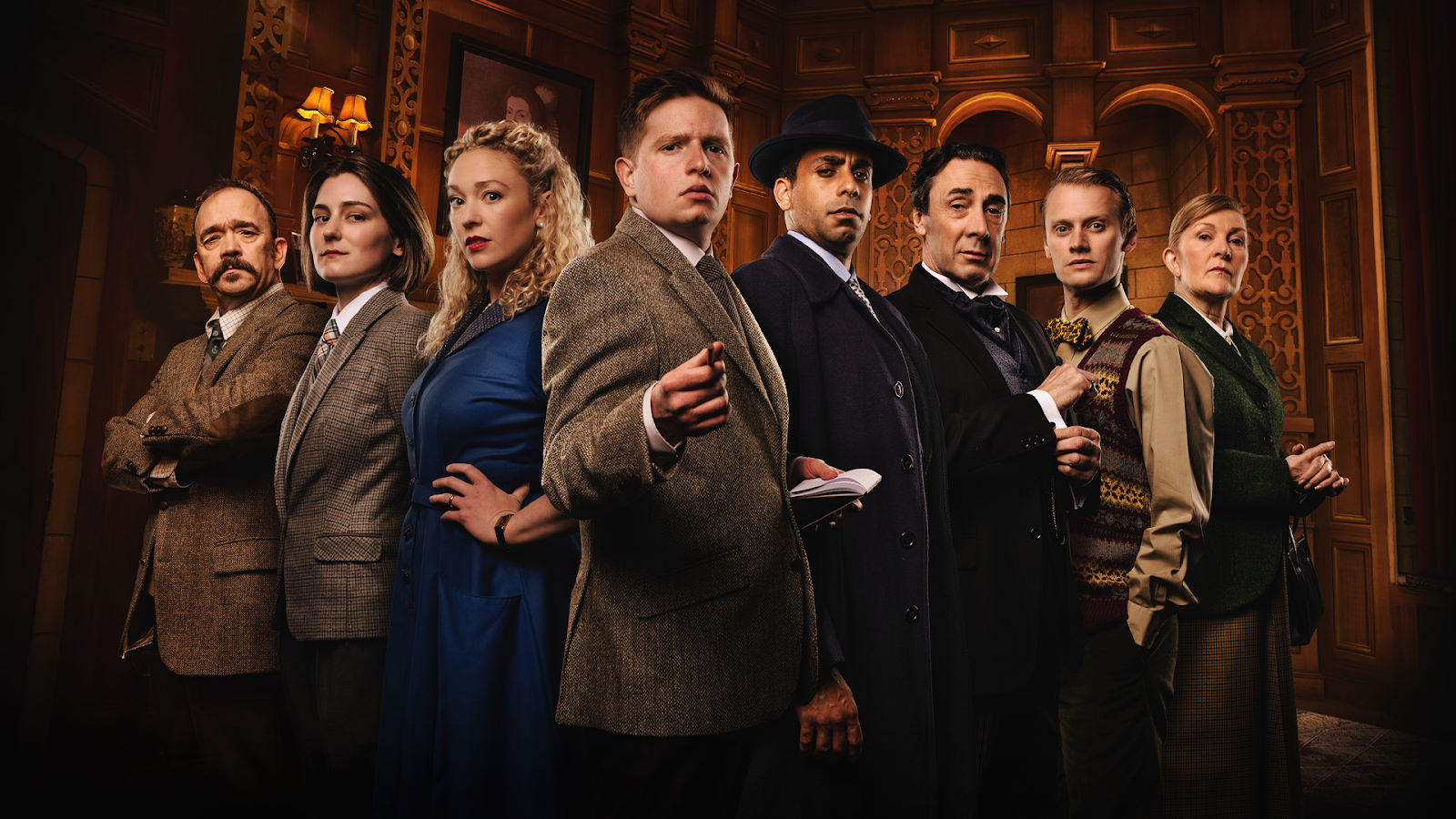Ahh, the jukebox musical. The wonderfully entertaining bridge between mainstream pop songs and musical theatre – and what a mash up. They work for a reason – and 'Greatest Days' is no exception to the rule. Packed full of nostalgia, emotion and some absolute pop bangers, what’s not to love?
Following the lives of 5 boy-band obsessed teenage girls in the '90s, 'Greatest Days' is a tale of love, loss, friendship, and of life not working out the way you thought it would, but still being amazing anyway. After finally winning the opportunity to see their favourite band live and having the night of their young lives, sharing their hopes and dreams for the future and promising to never lose touch – it really is the teenage dream. But after a devastating accident tears the group apart, we cut to 25 years later with the girls not quite where they imagined they’d be.
I never expected to find myself crying in public to a Take That soundtrack, but that’s right where I ended up – as the show reminds us, things don’t always work out the way you expect. With Heather (Jennifer Ellison) now in her 40s and living the housewife life with her long-term partner Jeff (Christopher D. Hunt) the girl who always dreamed of her big white wedding is still dreaming, missing the fun and excitement of her teenage years and using her throwback music as a coping mechanism. So when another competition raises its head and she has the opportunity to see the band once again, and she’s lucky enough to win – it seems like fate that she should get the gang back together. And realising that none of them had quite lived the life they thought they would, we see them come to the realisation that it’s just fine – the best laid plans, and all that. But seeing each other again and being open about their experiences shows just how much they need each other’s support, and it’s a heartwarming rekindling that really tugs on the heartstrings. I don’t want to give too much away, but it really is an emotional rollercoaster! Mady Moore’s portrayal of Debbie is absolutely stunning and definitely worth a mention; bringing the show together from past to present with her confidence and lust for life, she’s a real firecracker.
Ellison is a charming and charismatic Rachel, encompassing the plucky spirit of a Northern girl with a funny side and a gentle touch. She’s supported wonderfully by Olivia Hallett as young Rachel; the two paint a wonderful picture of a young girl full of hope, living in the past where it was a little more plentiful. The group is completed with the sassy and snarky Heather (Charlotte Anne Steen) the tightly wound Zoe (Holly Ashton) and hilarious Claire (Karen Holmes) The entire group fit together so flawlessly; it really does feel like you’re watching a group of best friends just enjoying themselves! Although we had a couple of understudies on the night it was impossible to tell; the casting remained remarkable and the cast gelled together beautifully. I particularly enjoyed the interspersion of the younger characters with their older selves; it made the emotions hit even harder to see the characters in comparison with their younger selves.
The band themselves were incredible too – nobody can quite square up to Robbie and Gary, but these boys did a remarkable job and took us straight back to the '90s, parachute pants and all. It’s worth seeing even if you’re not a huge Take That fan (although if not, why?) as the show isn’t really about the band as I’d first expected, but the effect they can have on the world and the role music can play in your life. The vocals are amazing, the lights are like a stadium show (beautifully designed by Rob Casey, but maybe a tad too much stadium for the Bradford Alhambra; my retinas are still adjusting.) All in all it’s a good laugh, a good cry and a good reason to have a boogie in your seat (even if it does make you feel a little bit old when you come to the realisation of just how long ago the '90s actually was…)
EAhh, the jukebox musical. The wonderfully entertaining bridge between mainstream pop songs and musical theatre – and what a mash up. They work for a reason – and Greatest Days is no exception to the rule. Packed full of nostalgia, emotion and some absolute pop bangers, what’s not to love?
Following the lives of 5 boy-band obsessed teenage girls in the 90s, Greatest Days is a tale of love, loss, friendship, and of life not working out the way you thought it would, but still being amazing anyway. After finally winning the opportunity to see their favourite band live and having the night of their young lives, sharing their hopes and dreams for the future and promising to never lose touch – it really is the teenage dream. But after a devastating accident tears the group apart, we cut to 25 years later with the girls not quite where they imagined they’d be.
I never expected to find myself crying in public to a Take That soundtrack, but that’s right where I ended up – as the show reminds us, things don’t always work out the way you expect. With Heather (Jennifer Ellison) now in her 40s and living the housewife life with her long-term partner Jeff (Christopher D. Hunt) the girl who always dreamed of her big white wedding is still dreaming, missing the fun and excitement of her teenage years and using her throwback music as a coping mechanism. So when another competition raises its head and she has the opportunity to see the band once again, and she’s lucky enough to win – it seems like fate that she should get the gang back together. And realising that none of them had quite lived the life they thought they would, we seem them come to the realisation that it’s just fine – the best laid plans, and all that. But seeing each other again and being open about their experiences shows just how much they need each other’s support, and it’s a heartwarming rekindling that really tugs on the heartstrings. I don’t want to give too much away, but it really is an emotional rollercoaster! Mady Moore’s portrayal of Debbie is absolutely stunning and definitely worth a mention; bringing the show together from past to present with her confidence and lust for life, she’s a real firecracker.
Ellison is a charming and charismatic Rachel, encompassing the plucky spirit of a Northern girl with a funny side and a gentle touch. She’s supported wonderfully by Olivia Hallett as young Rachel; the two paint a wonderful picture of a young girl full of hope, living in the past where it was a little more plentiful. The group is completed with the sassy and snarky Heather (Charlotte Anne Steen) the tightly wound Zoe (Holly Ashton) and hilarious Claire (Karen Holmes) The entire group fit together so flawlessly; it really does feel like you’re watching a group of best friends just enjoying themselves! Although we had a couple of understudies on the night it was impossible to tell; the casting remained remarkable and the cast gelled together beautifully. I particularly enjoyed the interspersion of the younger characters with their older selves; it made the emotions hit even harder to see the characters in comparison with their younger selves.
The band themselves were incredible too – nobody can quite square up to Robbie and Gary, but these boys did a remarkable job and took us straight back to the 90s, parachute pants and all. It’s worth seeing even if you’re not a huge Take That fan (although if not, why?) as the show isn’t really about the band as I’d first expected, but the effect they can have on the world and the role music can play in your life. The vocals are amazing, the lights are like a stadium show (beautifully designed by Rob Casey, but maybe a tad too much stadium for the Bradford Alhambra; my retinas are still adjusting.) All in all it’s a good laugh, a good cry and a good reason to have a boogie in your seat (even if it does make you feel a little bit old when you come to the realisation of just how long ago the 90s actually was…)
Everybody loves a happy ending, and 'Greatest Days' just goes to show that even though yours might not be the one you imagined, it’s still worth embracing – especially when you’ve got your people by your side. Everybody loves a happy ending, and 'Greatest Days' just goes to show that even though yours might not be the one you imagined, it’s still worth embracing – especially when you’ve got your people by your side.
Review - Hazel Kaye
on - 19.9.23



















